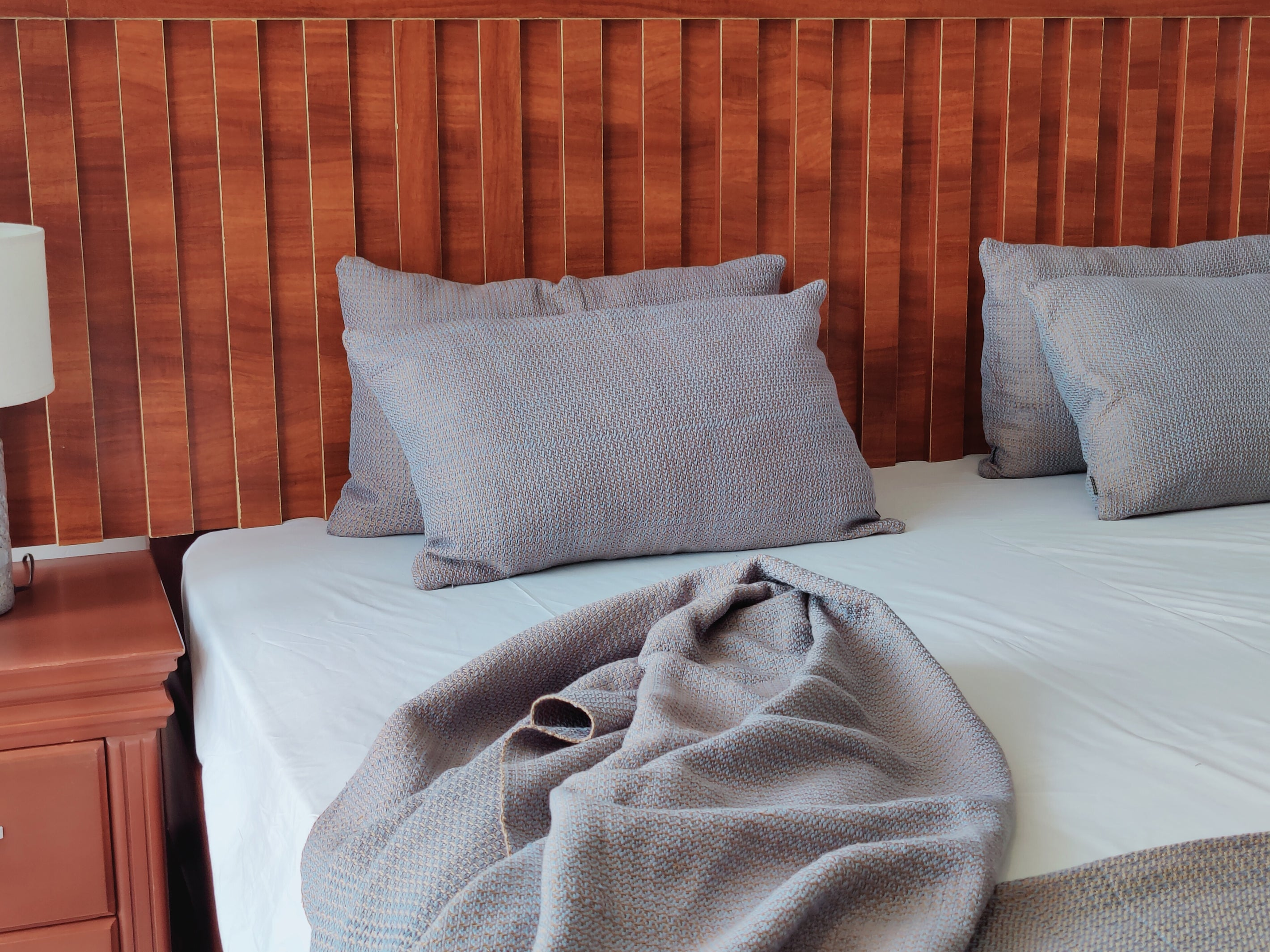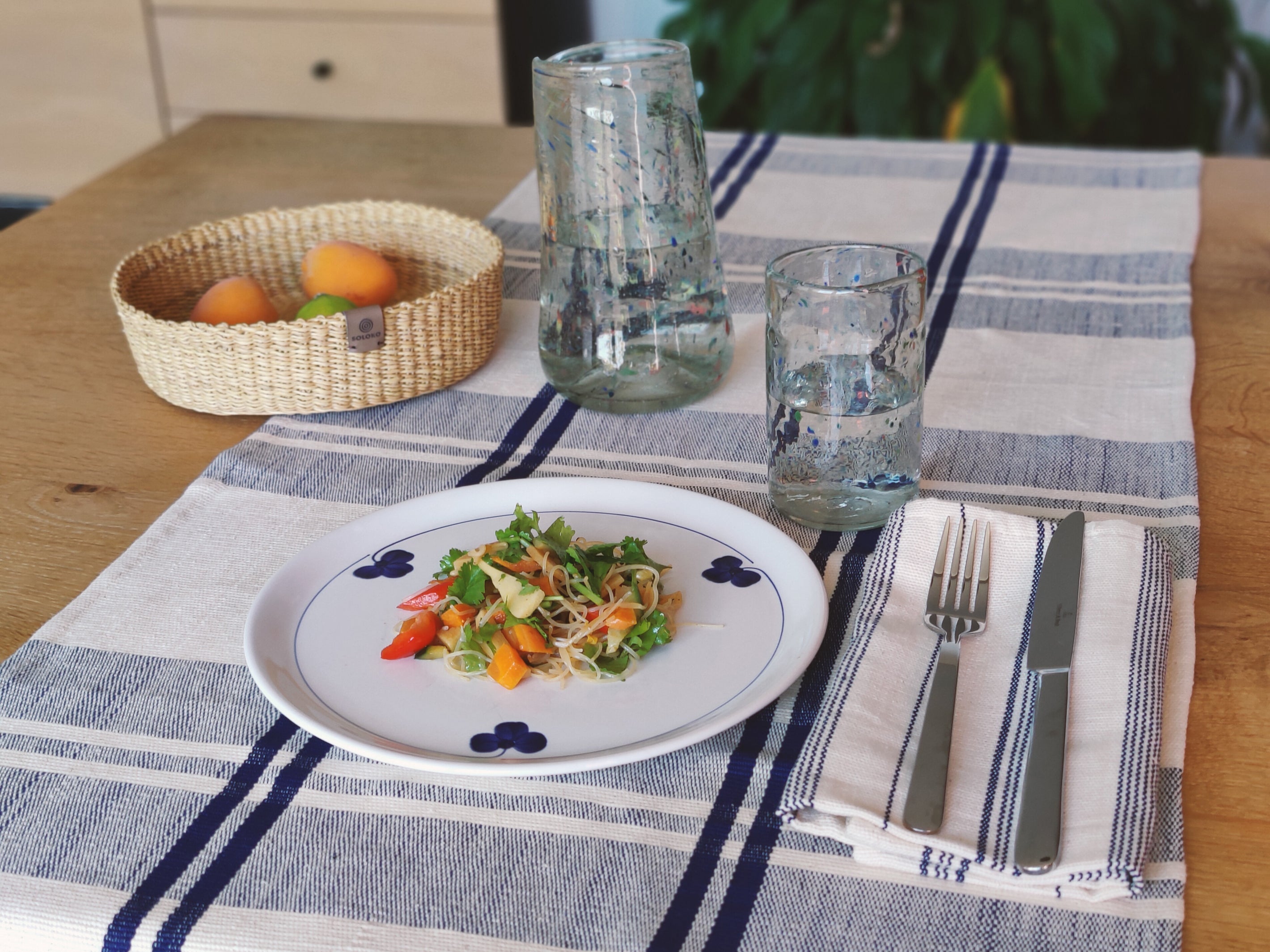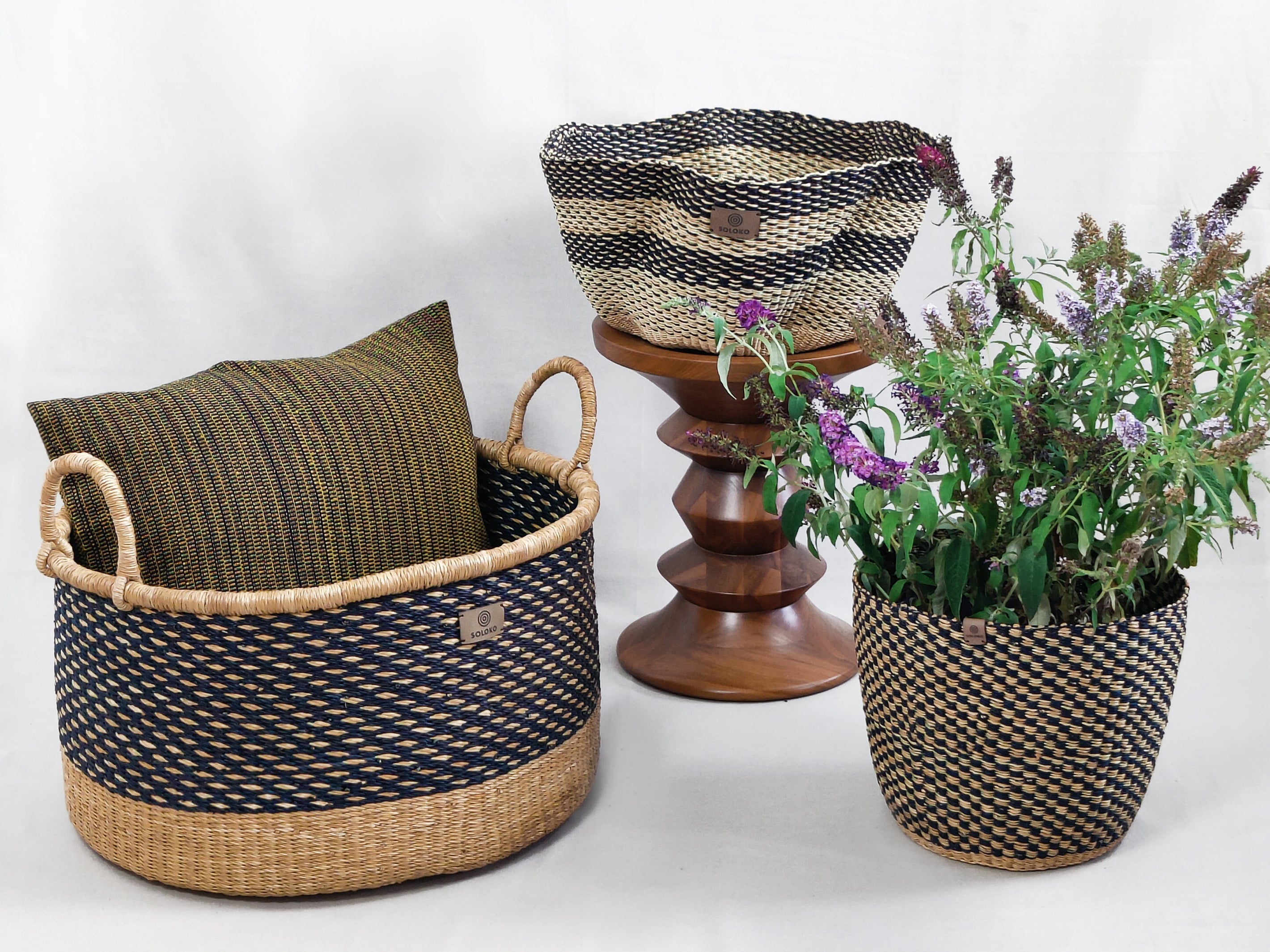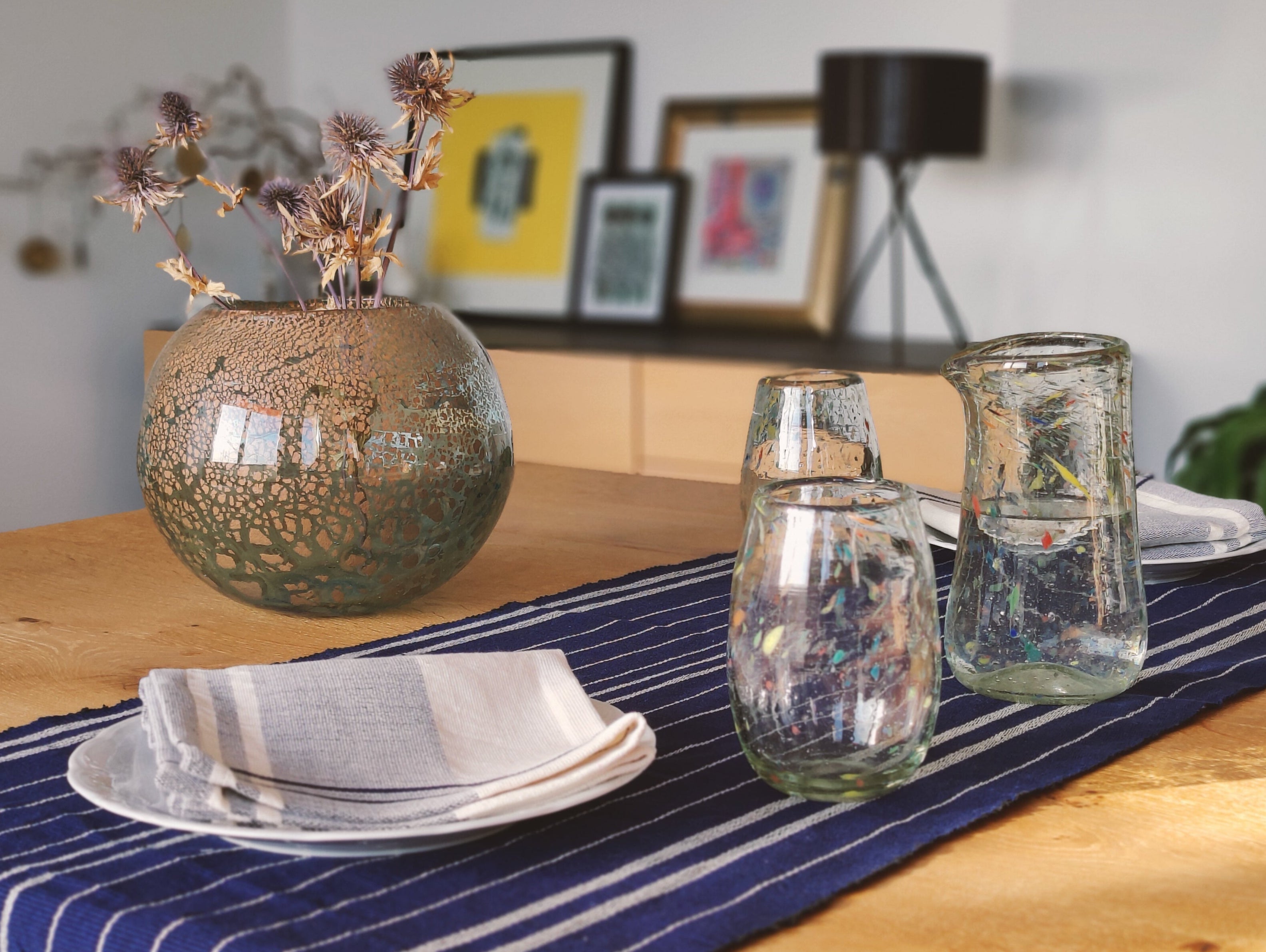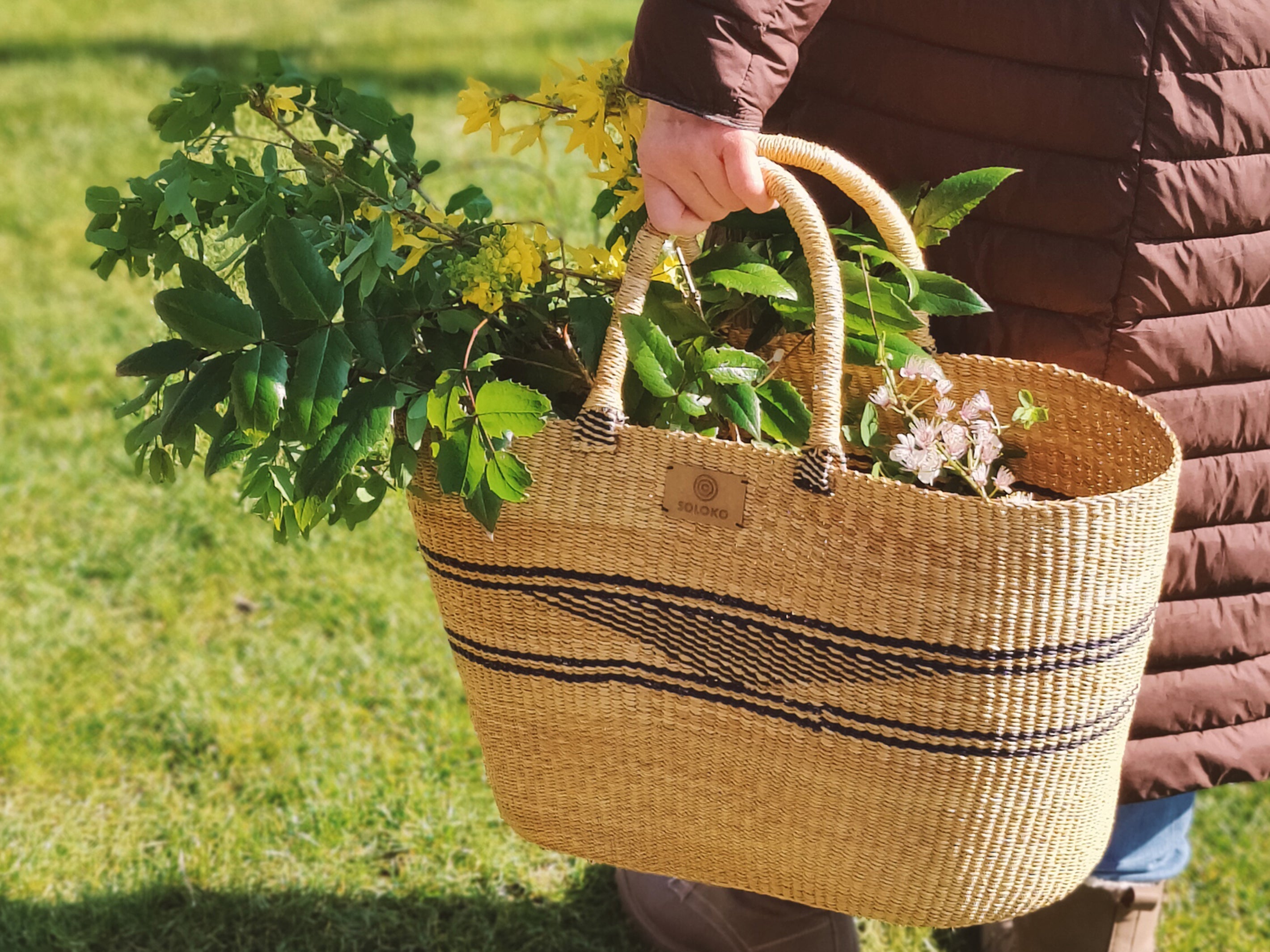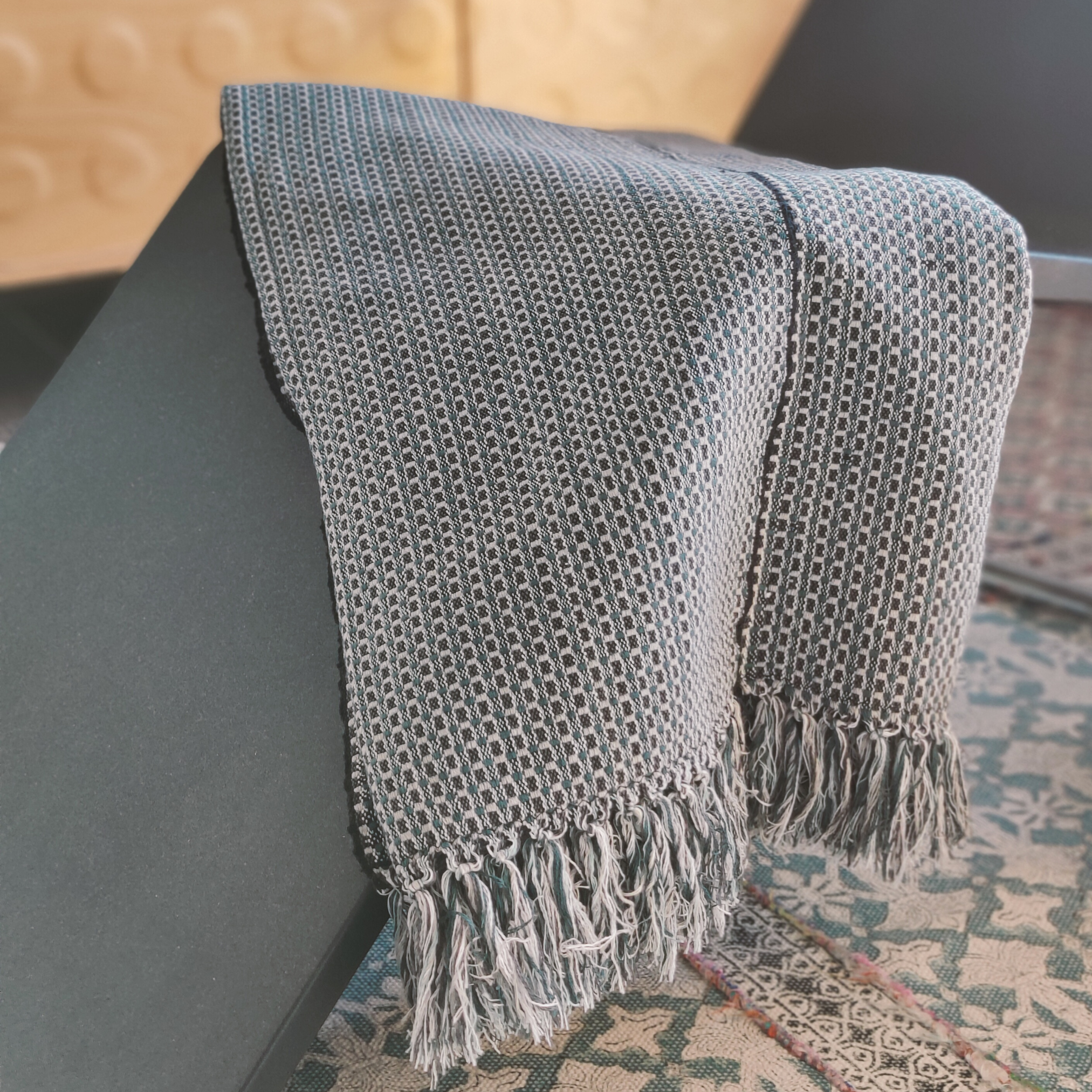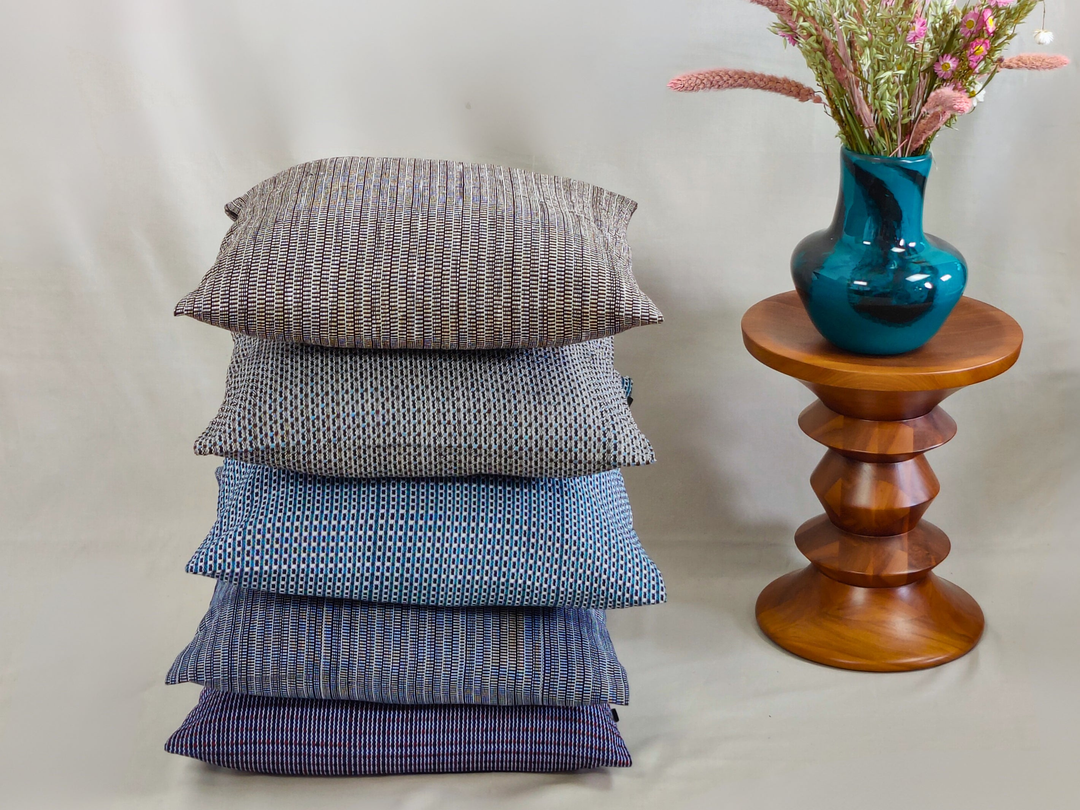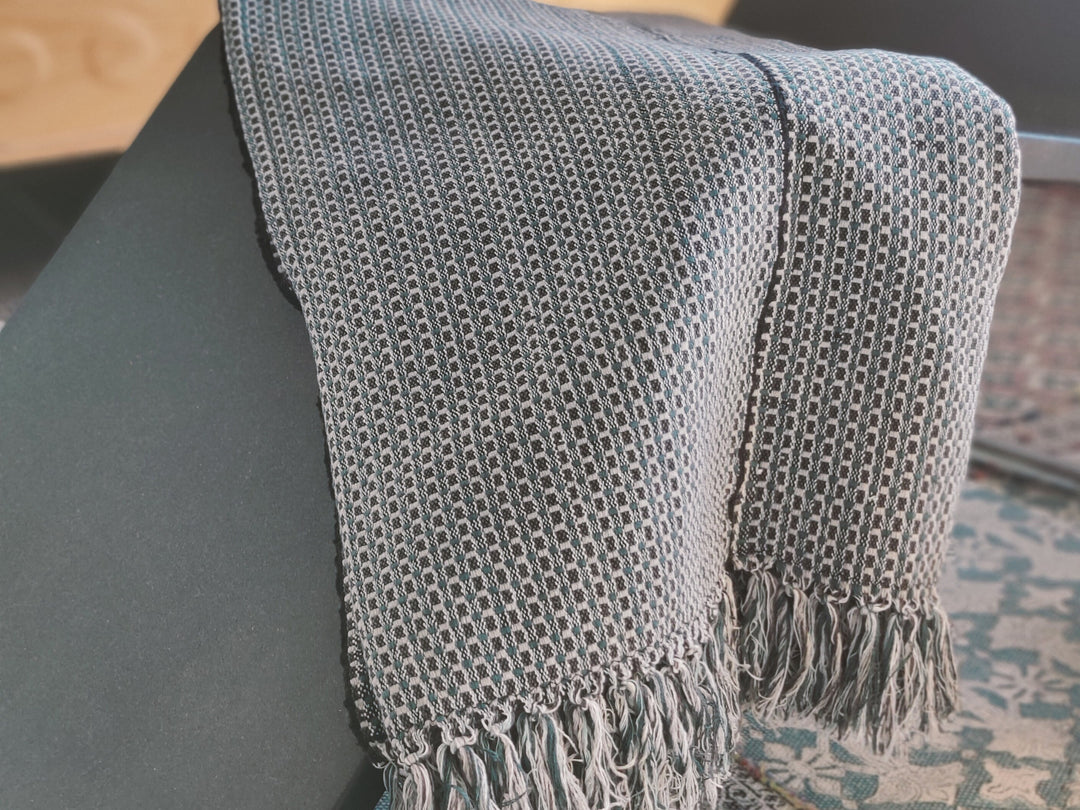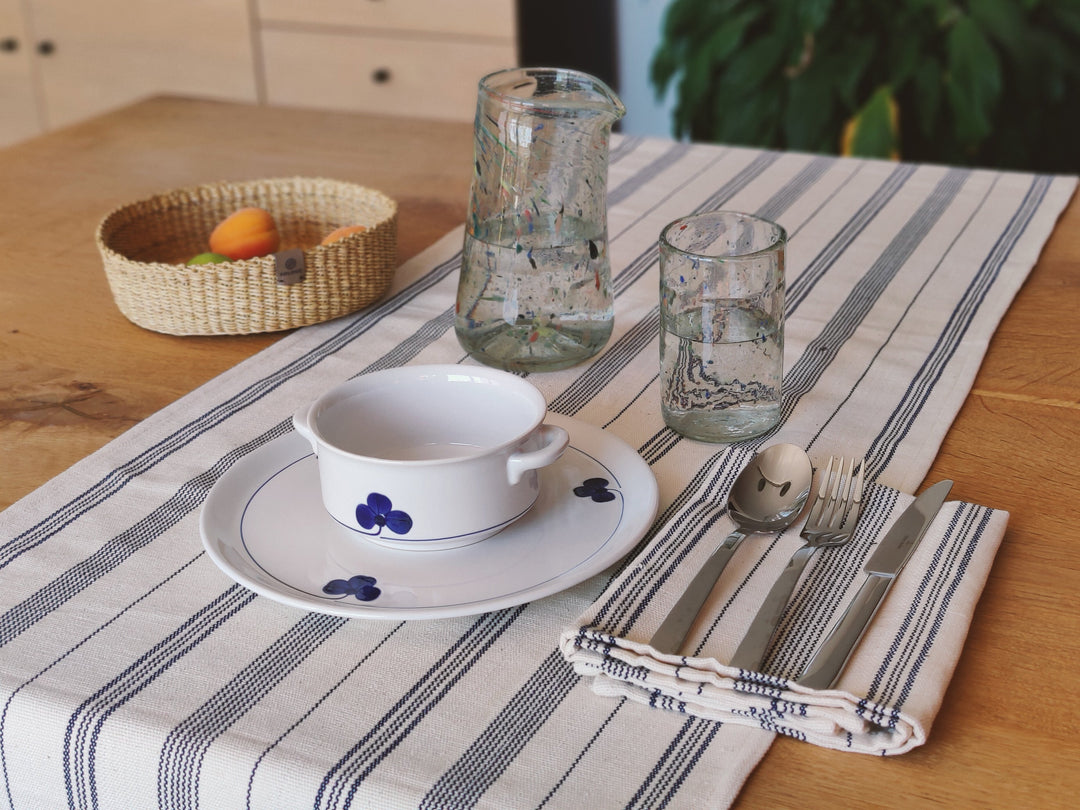Kente is more than just a beautifully woven fabric with vibrant colors and unique patterns. Kente dates back to an ancient weaving tradition that is deeply connected to identity and culture.
All our handwoven fabrics are based on the Kente weaving tradition of the Ewe culture in the Volta Region of Ghana. Our goal is to preserve the authenticity of traditional weaving patterns while adapting them with subtle changes and new color definitions, making them desirable for the rest of the world. For the color definition, we bring in our expertise, creating an exceptional synergy of traditional values and contemporary designs.
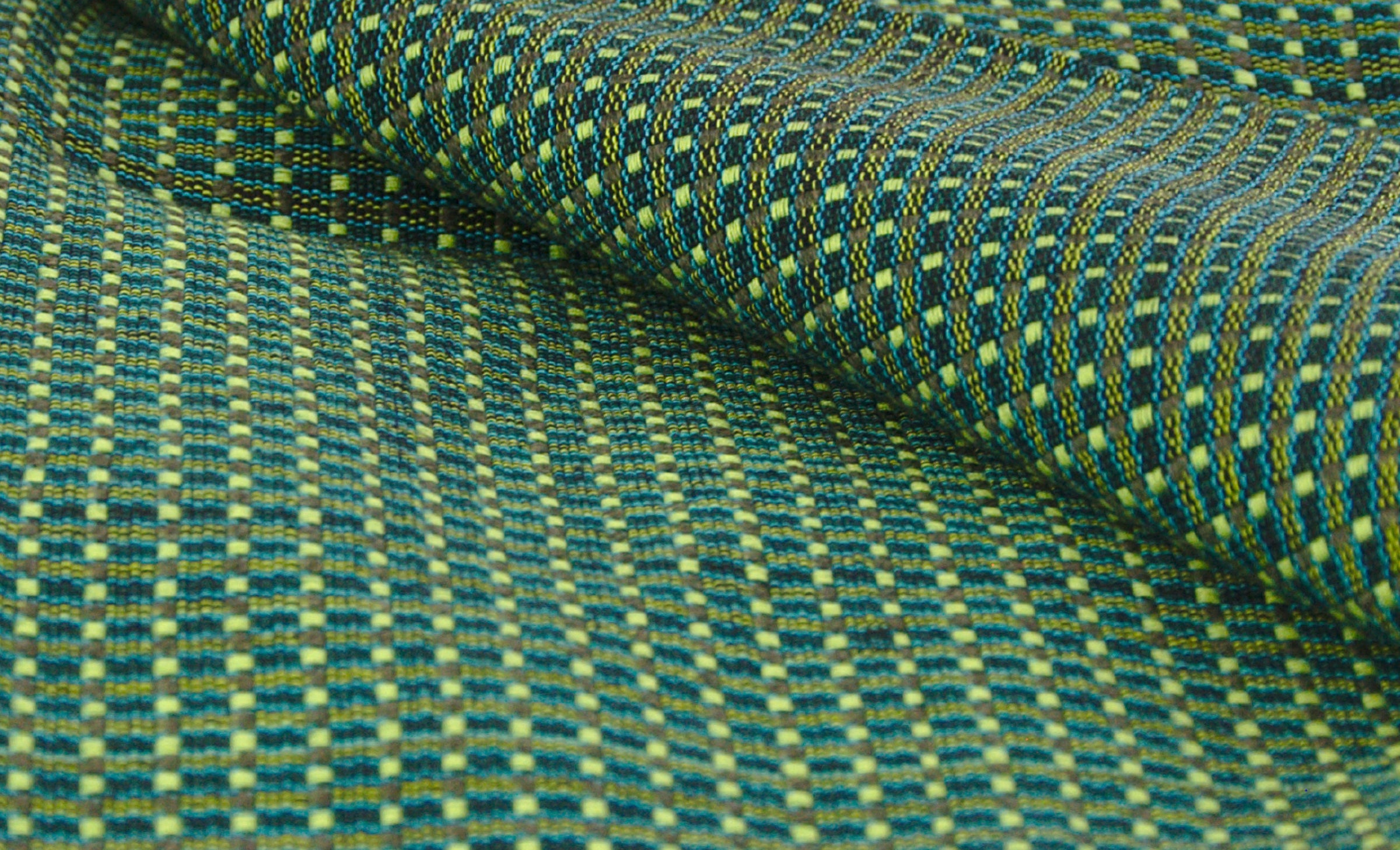
Through the unique combination of colors, patterns, and symbols, each Kente fabric gains its own distinct meaning.
Kente is a visual representation of history, philosophy, ethics, religious beliefs, social values, and political thoughts. Traditionally, Kente is worn not only for its beauty but also for its symbolic significance. The patterns and motifs are designed by the weavers, who also assign names and meanings to them. Each fabric thus has its own name and significance. These names and meanings are derived from historical events, personal achievements, proverbs, moral values, social rules, human behavior, and certain characteristics of plants and animals. The patterns and motifs are often geometric representations of objects that are linked to the intended meaning.
Each Kente fabric design comes with numerous variations in color and motifs. The color symbolism influences the aesthetics of Kente. Colors are chosen both for their visual impact and their symbolic meaning, with the color selection being determined by tradition or the individual aesthetic preferences of the weaver.
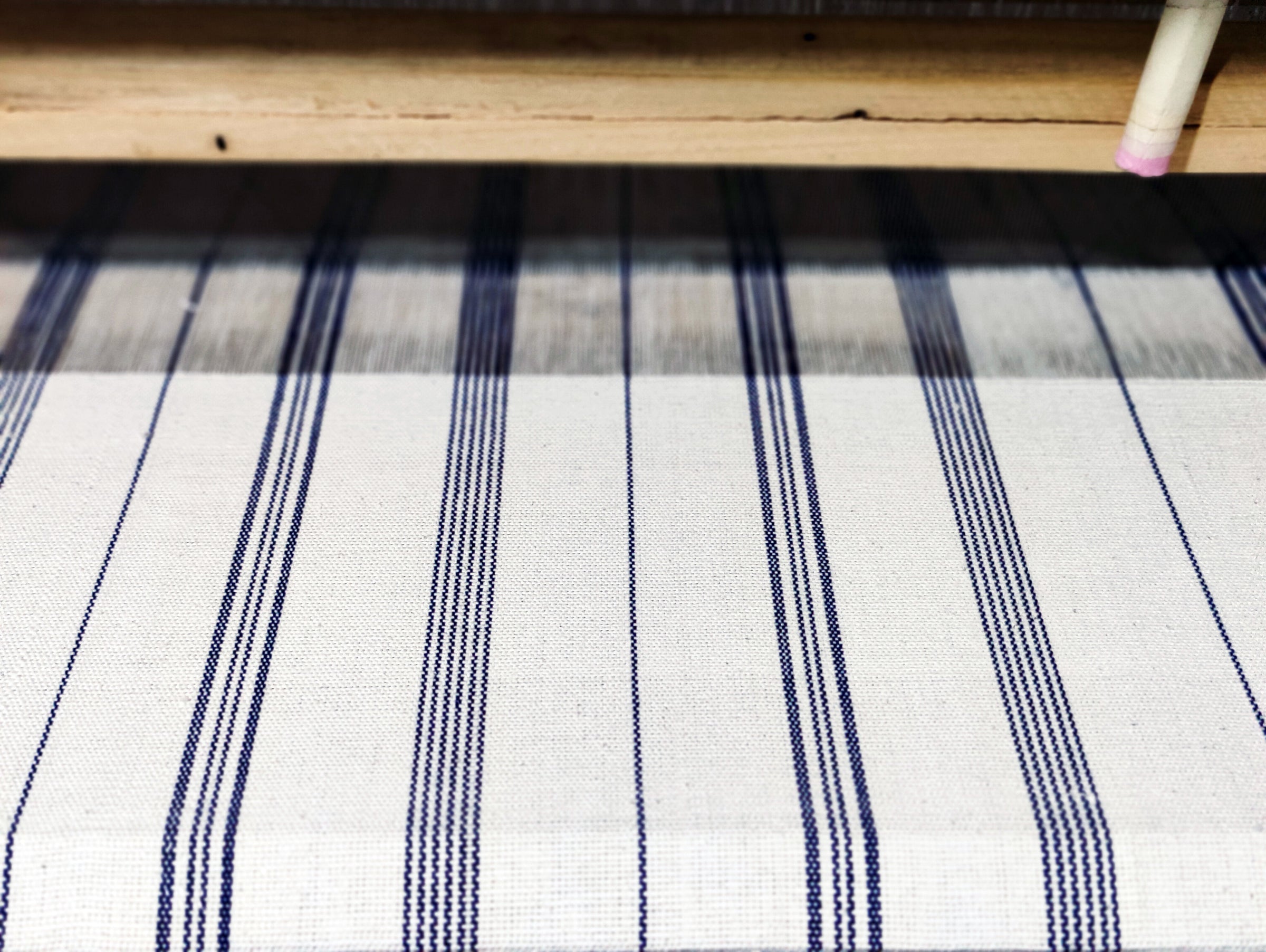
Soloko textiles tell stories
Through the unique combination of colors, patterns, and symbols, each fabric gains its own meaning. And behind every pattern is a story, which also plays a role in the naming of our textiles. Each design is inspired by the wise sayings of the Ewe culture. Most African thoughts and languages are expressed through proverbs, including in Ghanaian culture and tradition. In the world of the Ewe, a proverb is the jewel of the Ewe language. Proverbs are known for the wisdom they impart to people.
Most of our fabric designs contain an Ewe proverb, handwoven into a lasting work of art.
Design "ABILITY"
Design "ABILITY" reflects the following proverb: "A child who breaks the house of a snail cannot break the house of a tortoise" or in the Ewe language "Devi gba abɔbɔgo megba naklogo o." Design ABILITY expresses two similar beings fighting for power and dominance without recognising where their boundaries lie. The weave structure and colours are used to represent the movement of one colour over the other.
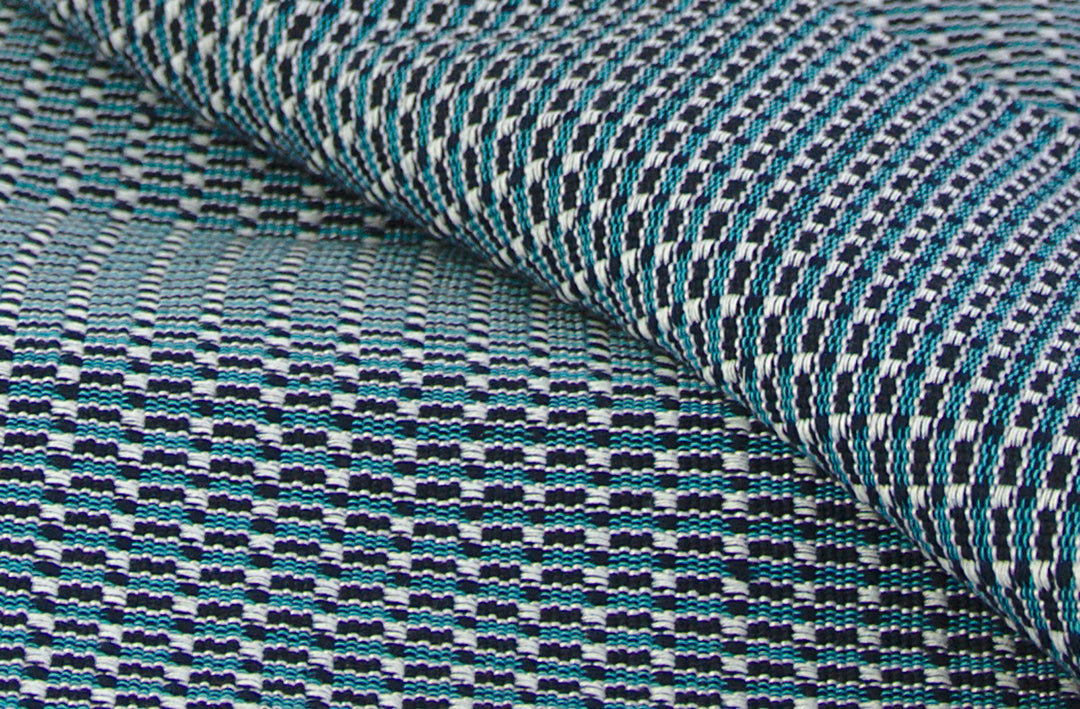
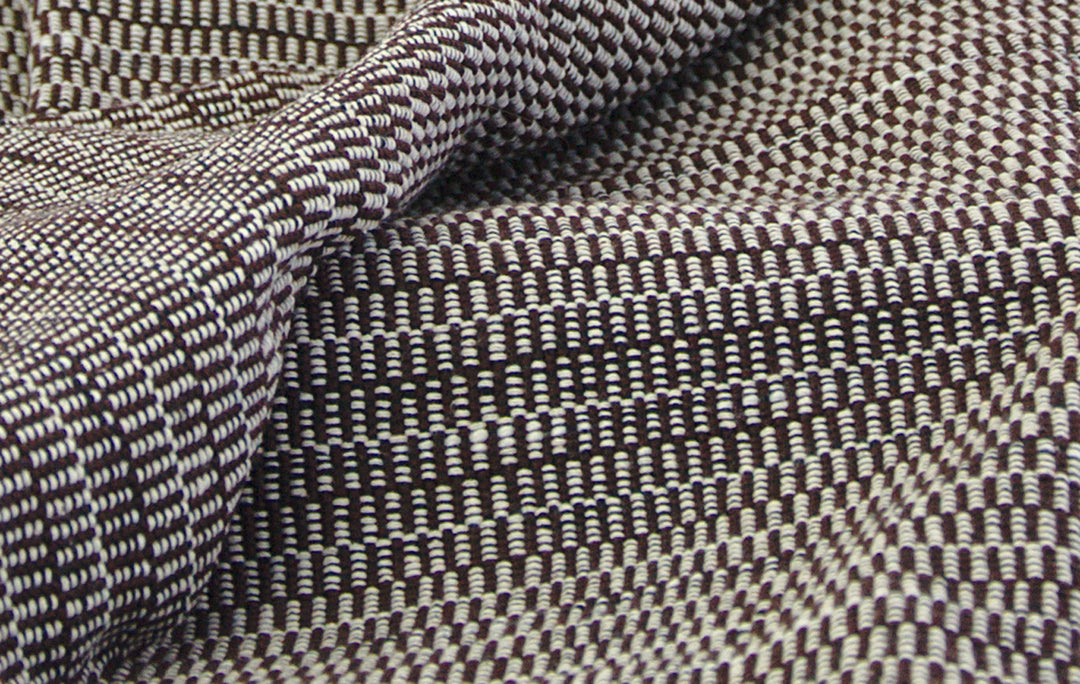
Design "TWO IS ONE"
The "TWO IS ONE" textile design stands for harmonious coexistence. Each colour combination is characterised by two dominant colours that combine harmoniously to form a perfect whole. The roots of this design go back to the proverb "It is good to be in pairs" or in the Ewe language "Ve Nenornornyo". It stands for mutuality and togetherness and emphasises that strength lies in living together in harmony.
Textiles Collection
Hand-woven in the traditional way
All our woven fabrics are crafted on traditional wooden looms. Every step is carried out in the classic manner - from winding the yarns, preparing the warp threads in length and order, to setting the threads in the shaft and weaving itself.
Our weavers have perfected the art of Kente weaving over many years and are experts in the traditional patterns of the Ewe culture.
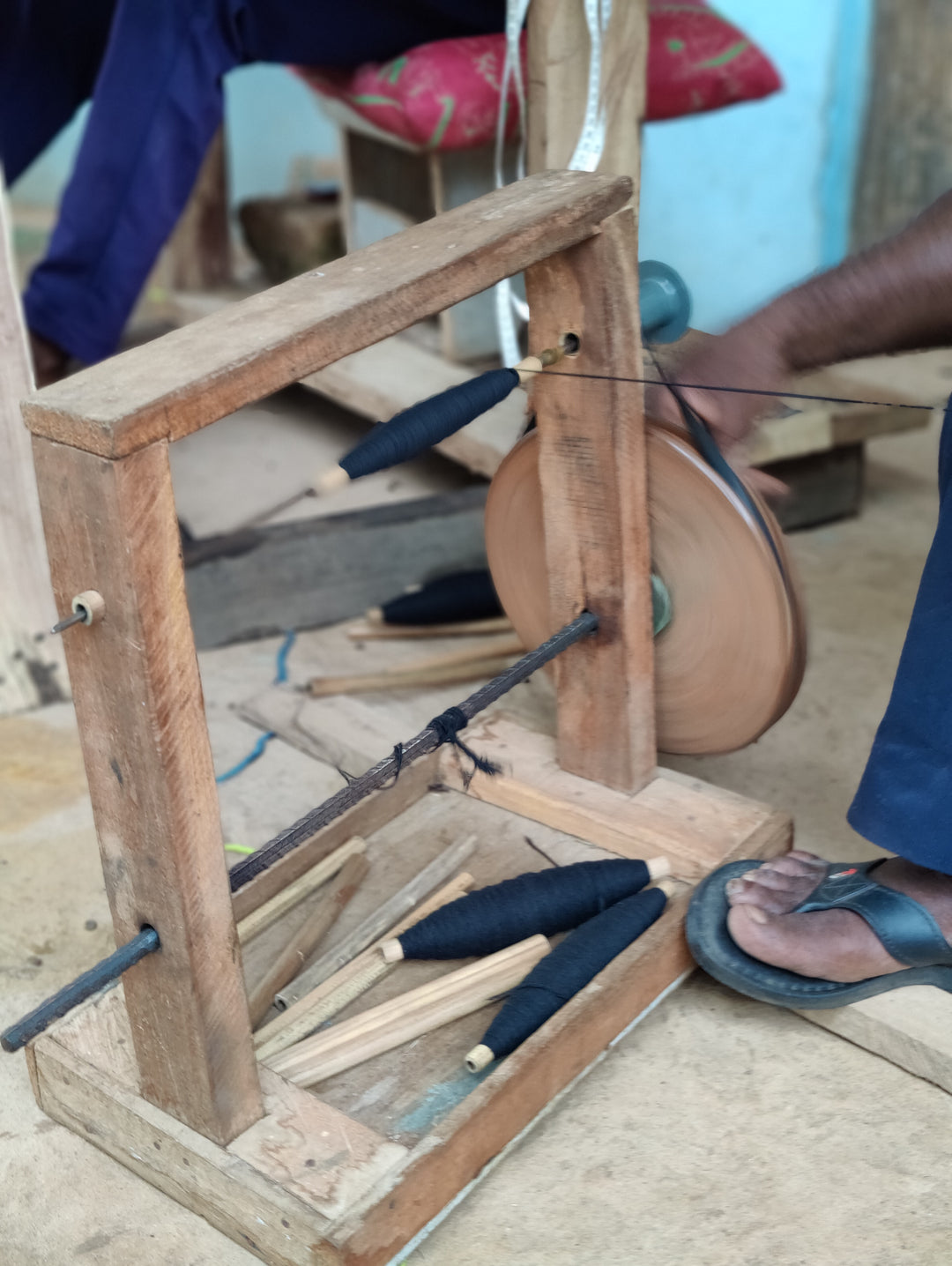
Spooling the yarn
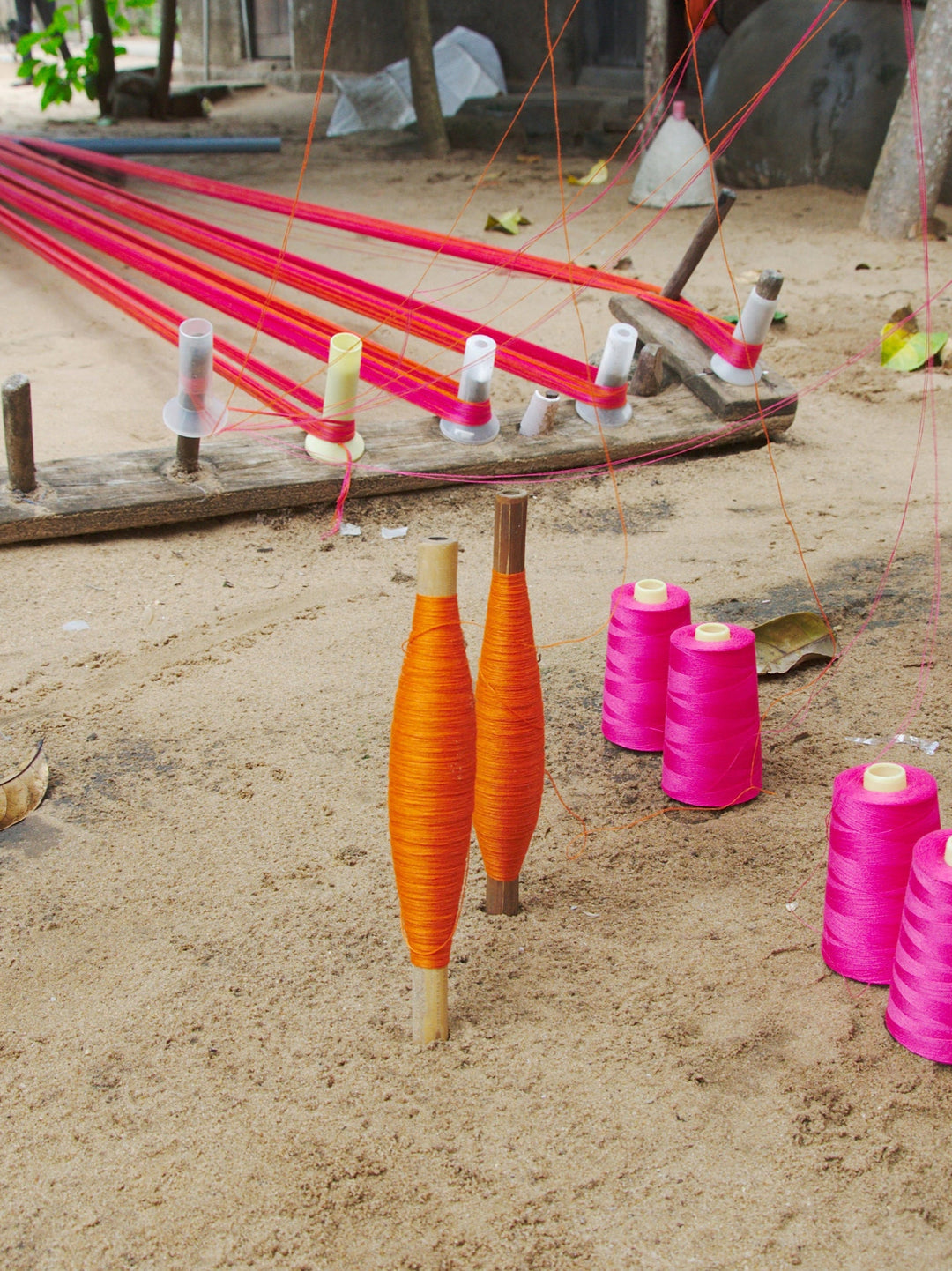
Preparation of the warp
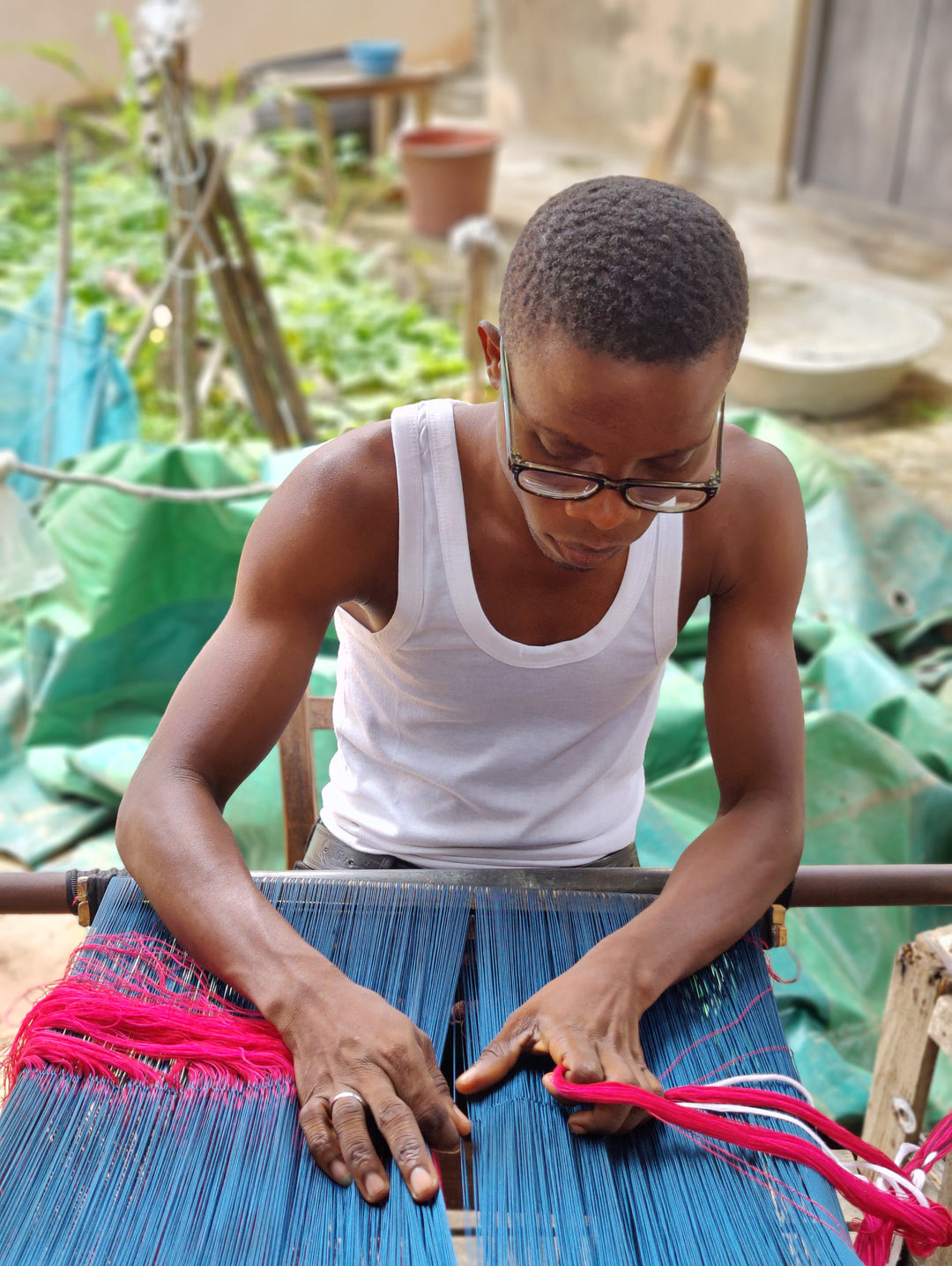
Preparation of the heddles
Traditionally, Kente is woven on narrow wooden looms. To adapt traditional fabrics for modern products, we have, on the one hand, expanded the narrow looms to a wider width. On the other hand, we have begun experimenting with the "Flying 8" loom, a wooden loom that allows us to retain traditional patterns while also creating new qualities and possibilities for implementation. This ensures that our fabrics remain true to tradition while meeting the demands of the modern world, resulting in timeless and beautiful pieces.
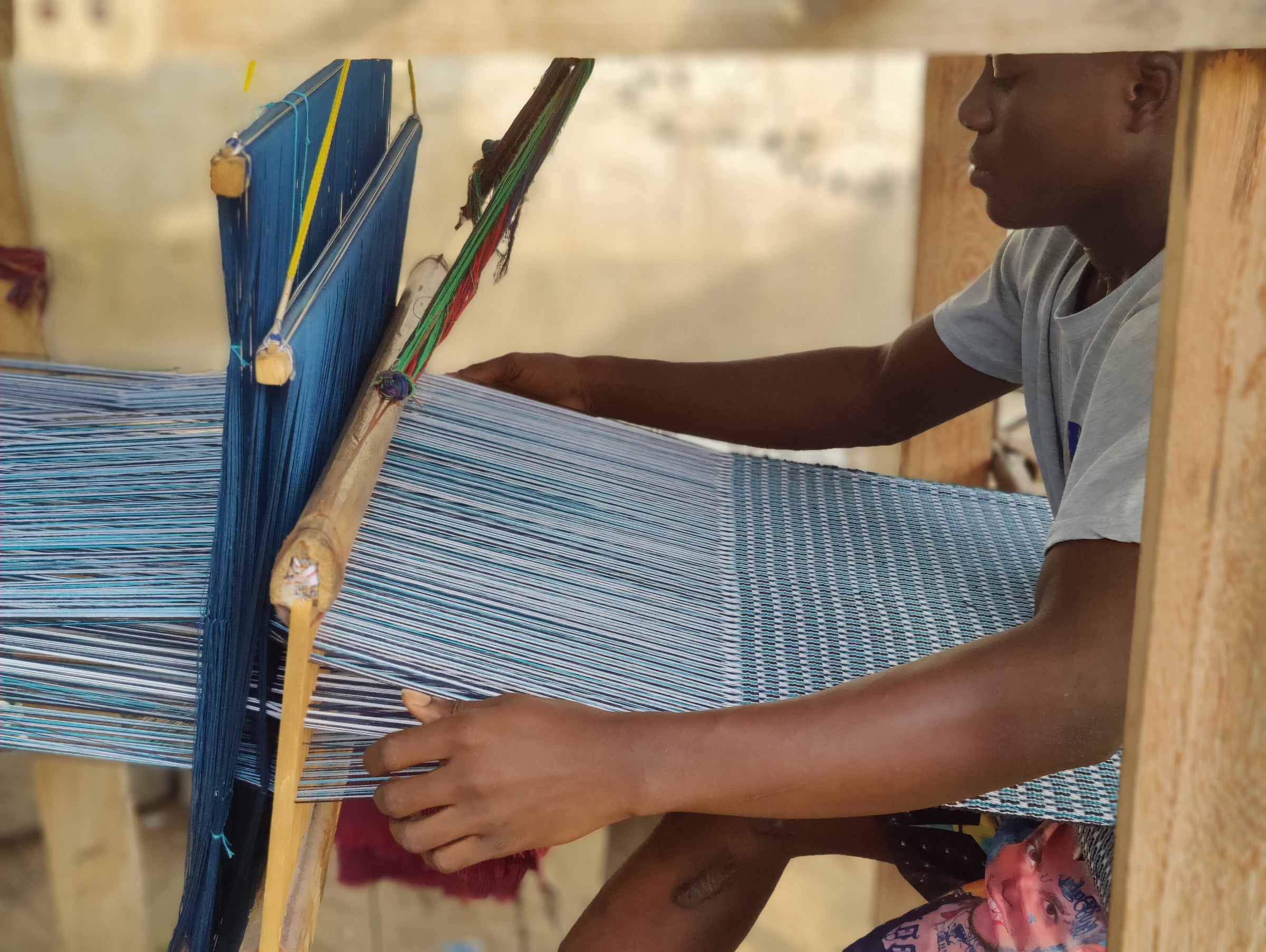
SOLOKO Loom
Adapted to a larger weaving width without losing the traditional way of weaving
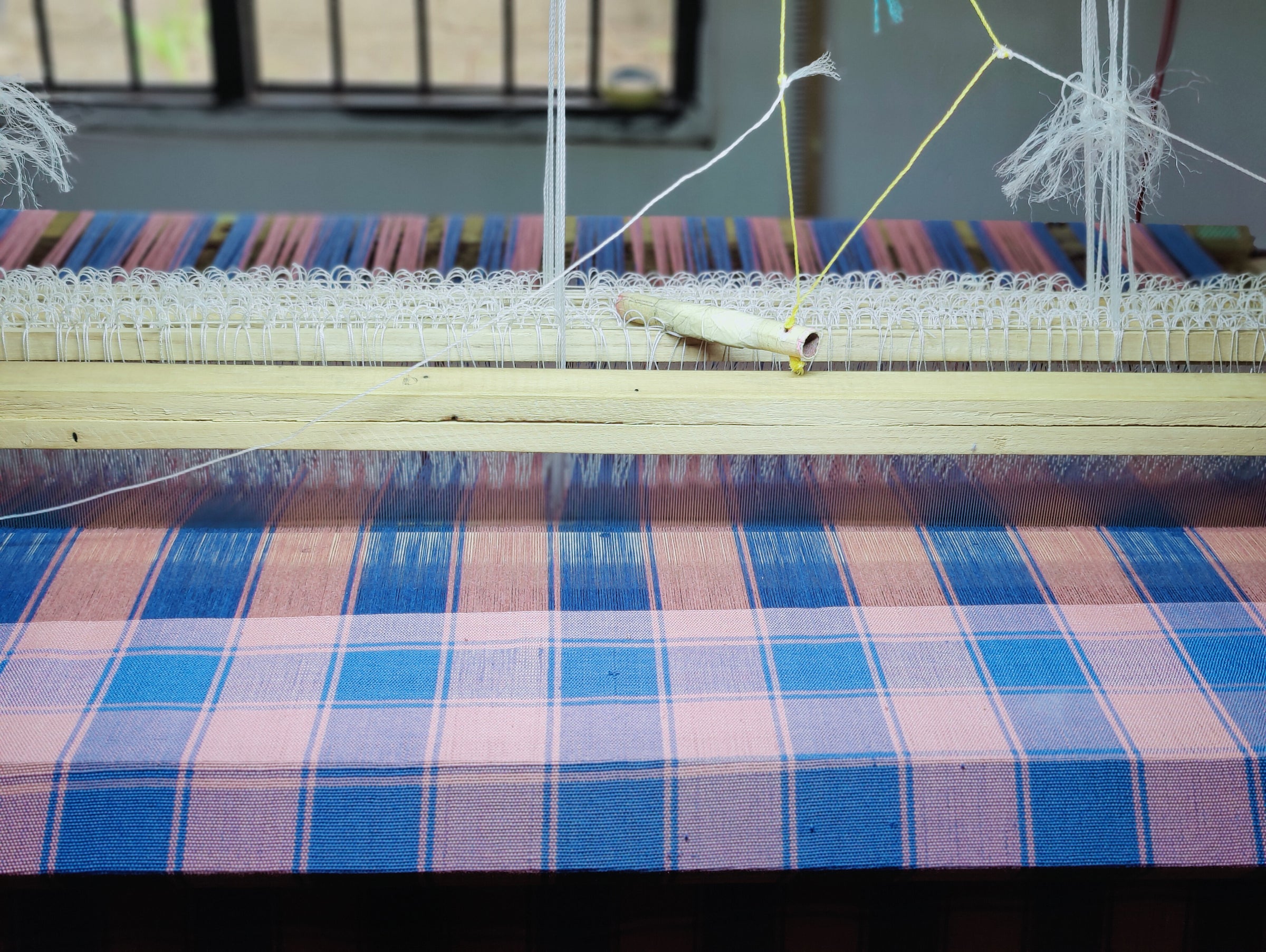
FLYING 8 Loom
Creates new opportunities to bring traditional Kente designs into the modern age


